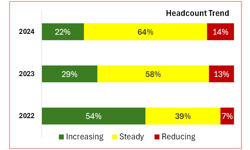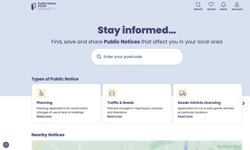So I visit the news vendor – WHSmith – to buy a newspaper costing around one euro. In this particular retailer, there were no sales staff, only a poor lady struggling to help legions of people forced to pay at an automated payment system. WHSmith have joined the legions of companies, who would rather sacrifice customer service in favour of sacking humans.
You couldn’t make it up. To buy my newspaper, I had to join a queue of over 25 incredibly angry people. When I finally arrive at the machine, I couldn’t get the bar code reader to read my paper’s bar code and then – and I’m not making this up – it asked me to scan my boarding pass. The poor lady was close to tears. She could not take cash. Apparently the queue that I was in – 25 and growing – was short. People were swearing, laughing, and abandoning the queue. But there was nothing this poor lady could do. I asked her how many of her colleagues had been fired, and she said: “don’t ask”.
WHSmith, a company with whom I have appreciated many happy years of professional service, have succumbed to one of the world’s most serious commercial diseases.
The curse of customer automation.
How often have you thrown your phone across the room because you wait for hours on end, trying to speak to someone, and your only solution is to press endless buttons, and listen to mind-boggling rotten music? British Airways have used the same awful piece of classical guitar playing for at least the last 15 years. Every time I hear it, it reminds me why I rarely travel with the One World Alliance. Clearly no-one in customer service ever phones their own service! Talk about anti-branding.
I recently counted that it took me 14 interventions, and 20 minutes to get through to a telecom company from a foreign country. That probably cost me €20. My mobile phone operator recently asked me to rekey my phone number three times, before I could get through to a human. Here’s a company with something like 200 million customers worldwide, and they can’t be bothered getting their databases to link up, because it is easier to waste my time.
So I did some math re the WHSmith scenario; examining the cost of replacing humans with a machine versus the cost of customer inconvenience. I won’t bore you here with my arithmetic, though I am happy to share it with you or WHSmith, but my reckoning is that the money in staff time is around 4% of the cost that their are customers’ time is worth. Now apply this to banking, airlines, supermarkets…… and dare I mention it, the news media!
We’re all paying for their sackings.
Do you remember humans?
They were a fascinating example of the advancement of nature. NASA have just sent a squillion dollar rocket thing to Mars to try and find life. I suspect it is being funded by Wallmart who are seeking a low-cost alien life-form to replace their unnecessary humans.
Most companies seem determined to remove life at all costs.
But humans, and their creativity, and empathy are, in reality, news media companies’ only asset.
Try finding a newspaper company’s contact details on a website? Do me a favour. Try finding your own contact details, both on Google, and on your company website. 90% chance you aren’t there. Type “newspaper consultant” into Google, and my website (which I confess is embarrassingly poor), and my email, phone number, and Skype address are at the top of the page (at least they were when I logged in, in Scotland two minutes ago!).
Having been at a conference and lost the business cards of the people I had met, today I had reason to find the email addresses of several, senior newspaper editors online. Out of five addresses, I found one.
Few newspapers publish writers’ addresses at the end of their stories. Fewer newspapers demand that they must. They should. The New York Times has a commendable system where you can contact their writers (many of whom of course are celebrities who can’t be expected to cope with volumes of mail from punters like myself). It would be unreasonable for Maureen Dowd or Paul Krugman to have to personally field emails, but at a local level, the ability for a reader to contact a writer, should be mandatory. On bigger cases, as in the New York Times, clearly a communication system is required, but at a local level (and I regular come across prima donnas with a bunch of excuses), any journalist who does not want to be accountable to his/her audience should be fired. A most basic standard must be that any writer be visible and accessible.
I can only assume that you share my frustration with the notion of customer automation. But in our news industry, customer interaction is more important than in any other. Automated switchboards and transactions are bad enough. But the fact that our readers are denied the right to communicate with our writers and editors is just about the dumbest thing. And it can be fixed in five minutes.










